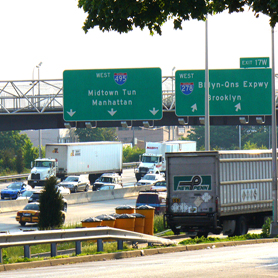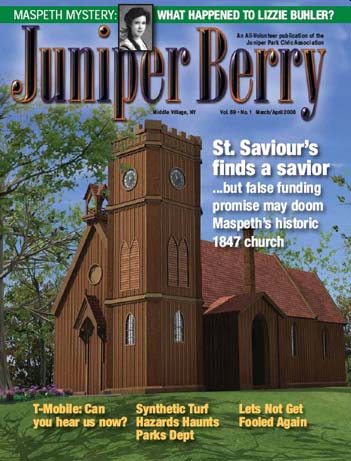Manhattan, its residents and its representatives have a serious and legitimate problem to deal with regarding traffic congestion and pollution. While all of the proposed solutions have the potential to negatively impact the areas and the people I represent, I felt it was prudent to wait before solidifying my position, because only comprehensive thinking and cooperation between communities will allow us to tackle large, complex problems like the one Manhattan now faces.
After review of the final proposal, I am now forced to definitively oppose congestion pricing. A number of prominent elected officials have already voiced opposition to this plan including Councilmember Melinda Katz. Some of the issues Katz and others have raised range from mildly troubling to monumentally problematic. These include the fact that there is no guarantee that revenues will be spent on mass transit, the possibility of increased park and riders in outer boroughs and elitist residential parking permit plans that will make people pay to park in their own neighborhoods and keep other citizens out, the fact that New Jersey residents will get a free ride because their tolls will offset the fee, and the fact that the plan hits low- and middle-income residents exceptionally hard while the more affluent among us will not be impacted.
While these issues gave me pause, it was not until I came upon the fatal flaw in the congestion pricing plan that I was forced to solidify my opposition. I cannot, as a representative of Forest Hills, Middle Village, Rego Park and the surrounding areas, cast a vote in favor of a plan of this magnitude before I am able to definitively assess the environmental impact to these communities. To do so would be the height of irresponsibility because the plan will result in uncalculated levels of increased pollution in the neighborhoods I represent, which in turn, affects the lungs of growing children, complicates or aggravates medical conditions of the elderly and is a contributing factor in respiratory, heart and lung disease.
There is a very simple way for those supporting this plan to address this shortcoming: mandate that a full Environmental Impact Study (EIS) be conducted in compliance with New York state's Environmental Quality Review Act (SEQRA). SEQRA was written specifically to address major undertakings, such as congestion pricing, with a fact-based analysis conducted by qualified experts. Without this information and a realistic understanding of the environmental impact on our neighborhoods, I will not support any plan that has the potential to inflict unknown levels of damage on the environmental well being of my communities and the physical health of the people I represent.
This issue is paramount, and I am stunned by members of the environmental community supporting congestion pricing who are asking us to acquiesce to this plan on the basis of a wink and a nod. The refusal of proponents of this plan to conduct a full review leads me to conclude that either they don't care about the environmental impact on our communities or they won't allow a full EIS because they know that the results will not be good for their cause.
All other deflective or untenable assertions that have been used to try to argue against the need for an EIS will not suffice. These have included: 1) citing studies on environmental impacts in other cities like London and Stockholm, with facts that can be spun in any direction 2) the promise of an expedited EIS that will take place after I cast my vote in the state legislature or 3) unproven guesswork by an environmental community, which interestingly, has consistently demanded SEQRA compliance and EISs on other major undertakings in New York state but not this one.
Conduct a full Environmental Impact Study, in compliance with all SEQRA requirements, and I will come back to the table ready to discuss all other aspects of congestion pricing in good faith in order to help our neighbors in Manhattan. Until that is done, I will not support congestion pricing.



